The woman with the golden touch: how Barbara Broccoli kept James Bond relevant
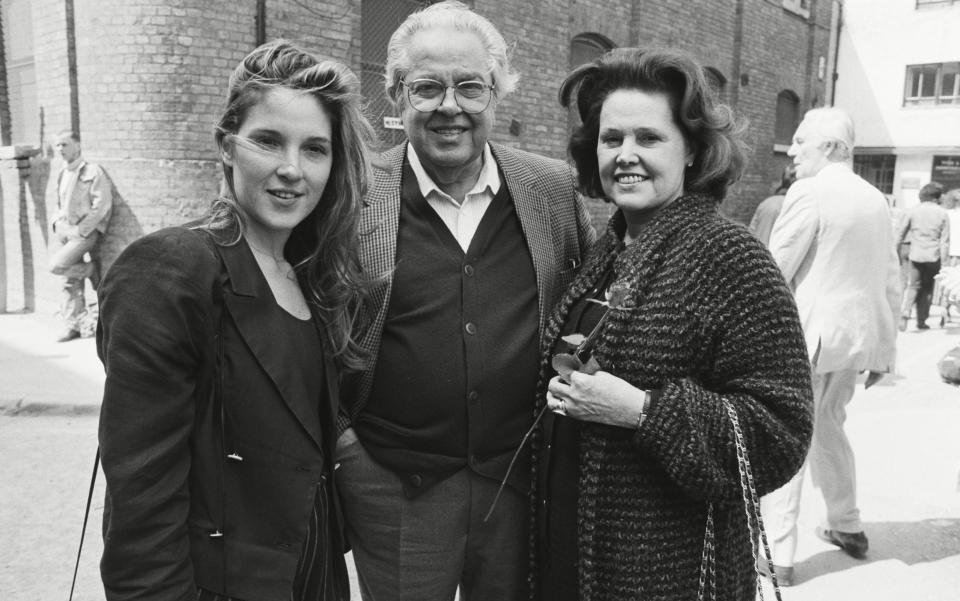
When Phoebe Waller-Bridge was hired as a writer for No Time to Die – the still-unreleased Bond 25 – many critics remarked it was about time that a female writer was signed up for the Bond franchise. Though Waller-Bridge isn’t the first woman to work on a Bond screenplay – Johanna Harwood co-scripted Dr No and adapted From Russia with Love; and Dana Stevens, though uncredited, worked on The World is Not Enough – for a series that goes back almost 60 years, female writers number few.
But what critics of Bond’s old boys’ network forget is that a woman, producer Barbara Broccoli, has been one of the primary creative forces behind James Bond for more than a quarter of a century – starting with the ever-popular GoldenEye, which celebrates its 25th anniversary this week.
Barbara Broccoli – daughter of Bond film impresario Albert “Cubby” Broccoli – took control of the Bond production company EON, along with her half-brother and producing partner Michael G Wilson, back in 1990.
Though famously private and low-key, Barbara Broccoli is widely reported to be a powerful, hands-on presence behind the scenes. “Barbara scares the hell out of people,” Michael Wilson told the New York Times in 2015. “Everyone is frightened to death of her.”
Speaking to Variety, Sam Mendes, director of Skyfall and Spectre, was less sensationalist in his assessment. “She is vivacious, and funny, and smart, and extremely warm-hearted, and the most loyal person you will ever meet,” Mendes said. “But she is absolutely old-school. She wants all of the attention to be on the movie. She hates it when producers try to make it about them.”
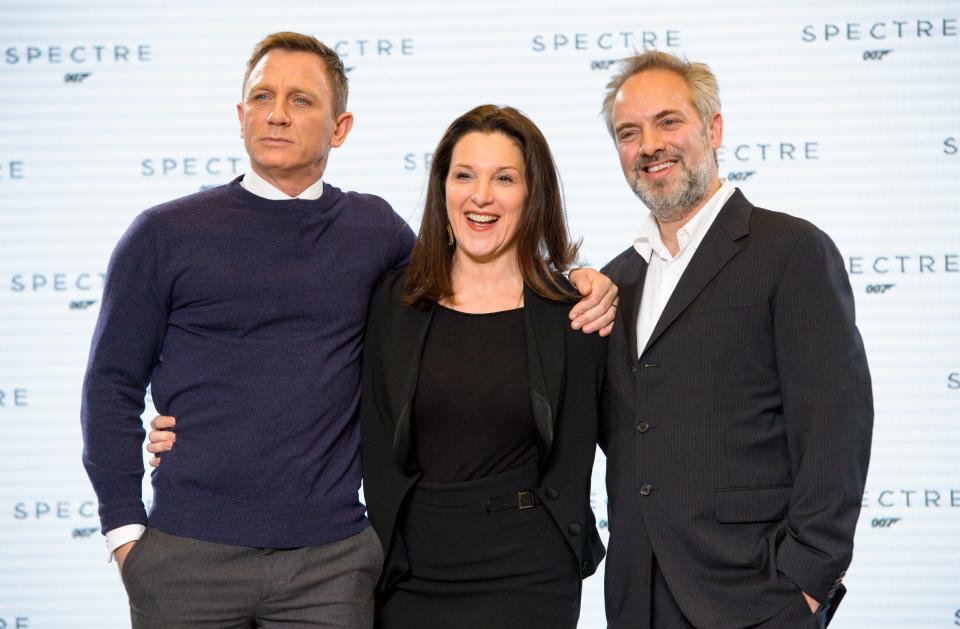
Broccoli, 60, is also credited with bringing Bond increasingly up to date. To steer cinema’s oldest blockbuster hero through the modern world is no easy feat. “For better or worse, we are the custodians of this character,” Broccoli told Variety in January. “We take that responsibility seriously.”
Broccoli has overseen Bond’s most successful era. The 24 films have collectively made $16.3 billion across the world (adjusted for inflation). The Daniel Craig films alone account for a global box office of $4 billion.
Born in 1960, Barbara Broccoli was a toddler on the set of the original Bond film, 1962’s Dr No. Interviews with Broccoli are rare, but she has often said that until the age of seven or eight she thought James Bond was a real person. “Everyone was always talking about him,” she told the Radio Times in 2012. “It was, ‘Bond’s coming’ or ‘Where’s Bond?’ He was like another member of the family, and I kept expecting him to walk in.”
One of her earliest memories is being on set in Japan for 1967’s You Only Live Twice. “I have a very vivid memory of seeing this exotic tea-party,” Broccoli said in Steven Priggé’s book, Movie Moguls Speak. “I don’t think I quite understood what went into film-making. I think I was more impressed with the beautiful costumes, beautiful setting and the very talented actors and actresses.” She came down with a bad case of tonsillitis during the making of You Only Live Twice; Sean Connery lent the Broccolis his personal doctor, and Barbara recuperated in Connery’s own suite.
Broccoli attended an American school in London and spent school holidays at Pinewood Studios. Growing up, Broccoli once said the James Bond actors were “all like uncles, like part of the family”. She occasionally realised how different life was growing in the official Bond family. “I suppose it was when we would bring friends home,” she said, “and they would go: ‘Oh, my god, that's Roger Moore.’”
She was an early fan of movies, particularly the David Lean-directed epics Doctor Zhivago and Lawrence of Arabia. Broccoli was also a childhood friend of fellow movie fan Dodi Fayed. “I met him through friends at the American school in London,” she later said. “Dodi, who loved cinema, used to visit my father’s film sets. We became part of his family and he became part of ours.”
Broccoli attended Loyola Marymount University in Los Angeles, where she studied film communications, and worked on Bond films during her summer breaks. Her first job was in the publicity department for The Spy Who Loved Me. She mostly logged production stills and wrote captions. “My involvement started because it was about my wanting to spend time with Dad,” Broccoli said. “Growing up, Dad would be getting calls at home all the time, so I used to be like his secretary.”
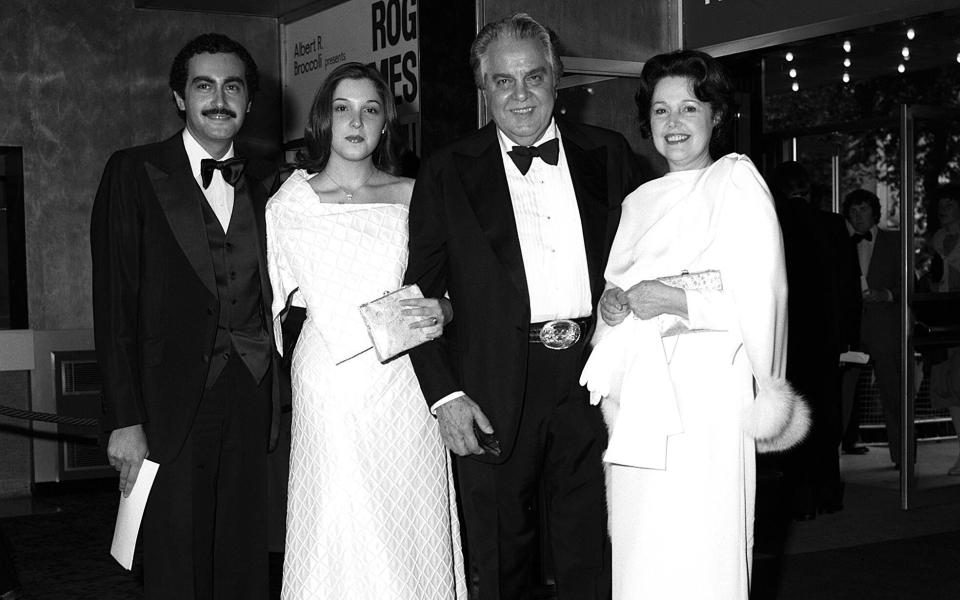
She was an assistant on Octopussy, third assistant director on A View to a Kill, and an associate producer on both Timothy Dalton adventures, The Living Daylights and Licence to Kill. Michael Wilson, Cubby Broccoli’s stepson, began working as an assistant and producer on the Roger Moore films in the Seventies. Also speaking in Steven Priggé’s book, Wilson said that his sister’s influence over the series began way before GoldenEye. “Even when Barbara was an associate producer, she was very involved,” Wilson said. “We have actually been working together since Octopussy, where she was the third assistant.”
When the half-siblings were handed the keys to Bond – truly the Aston Martin of film franchises – the series was in a state of flux and uncertainty. There was a break of six years between Licence to Kill and GoldenEye, the longest gap between any two Bond films (though the break between Spectre and No Time to Die is chasing the record, thanks to production delays and now Covid). The world had changed significantly: the Cold War was over; the Berlin Wall was broken down; international tensions had shifted; and Bond was seemingly in limbo with no one to spy on or kill. Bond had to be modernised.
Timothy Dalton was the “Bond of record”, but co-producers at MGM/United Artists wanted a new 007 for the new era. According to Some Kind of Hero, Matthew Field and Ajay Chowdhury’s excellent book on the Bond film series, the Broccolis – Cubby, Barbara and Michael Wilson – all “made the case” to keep Dalton. Cubby died in 1996.
Now, Barbara Broccoli is well regarded for keeping the Bond films up to date – a strong proponent for reflecting the world and culture in which her films are produced – so it’s unsurprising that GoldenEye was such a significant revamp for 007. Pierce Brosnan – who was offered the role before Dalton, but had to wait because of commitments on his TV show Remington Steele – was the right star to bring Bond into the Nineties. “Perfect for his time,” Broccoli said about Brosnan in the New York Times. “It was tricky. The press and everyone was saying: ‘The Wall has come down. The world is safe. Who needs James Bond?’ Pierce managed to get the right mix of realism and humour.”

Of course, the Nineties aren’t nearly as modern as they once were; some of the Brosnan era feels distinctly Rodge-like in its bum-pinching cheekiness. But a forward-thinking change that hasn’t dated was the inclusion of Judi Dench as all-new M, who scolds Bond by calling him a “sexist, misogynist dinosaur… a relic of the Cold War.” (Dench was so successful that the series killed any semblance of continuity by also having her return as M for the prequel, Casino Royale.)
As recalled in Some Kind of Hero, the female M was partly inspired by Stella Rimington, then-director of MI5, but partly by Broccoli herself. As co-writer Bruce Feirstein observed, “Barbara Broccoli enjoyed the odd bourbon and occasionally teased that Bond was a sexist and a dinosaur.”
While other female characters hadn’t entirely broken out of the “Bond girl” mould, they became noticeably more interesting under Broccoli’s early tenure. Particularly Sophie Marceau’s villain Elektra King in The World is Not Enough, and Halle Berry’s NSA agent Jinx in Die Another Day – with the skills and sexual prowess to rival Bond himself.
Broccoli tried to get a Jinx spin-off into production, but MGM baulked at the budget for a female-led actioner. The idea seems more likely with Lashana Lynch, who has taken the 007 mantle in No Time to Die (assuming she survives the film, of course).

On the production of The World is Not Enough, Dana Stevens – then-wife of director Michael Apted – worked on a script rewrite, focusing on punching-up the M and Elektra King characters. She found support from Broccoli but some resistance from the old boys. “I can remember Michael Wilson scoffing at some of the things I wanted to do with Sophie’s character as silly or ridiculous,” Stevens later said. “Barbara and I would say, ‘No they are not.’ […] I can see as the Bond franchise moved forwards, especially with Daniel Craig, that Barbara’s vision is bearing out.”
In 2001, Broccoli met chef James Martin. Ten years his senior, she paid £18,000 for him at a charity auction. They began a relationship and were together for four and a half years. Writing in The Mailin in 2008, Martin described how Broccoli – whose net worth is estimated between $150 and $300 million – showered him with ludicrously expensive gifts, including three genuine Picassos and a Paul Newman Daytona Rolex. She also wanted to buy him a black-on-black Aston Martin DBS, chassis number 007, at a cost of £180,000.
“I had to tell Barbara to stop buying me Picassos after the third one because I couldn't afford the insurance on them,” he wrote. He tried to turn down the Aston Martin but she insisted, and he left her to it. “She’s probably got a black on black Aston Martin DBS, chassis number 007, in a garage somewhere,” Martin said.
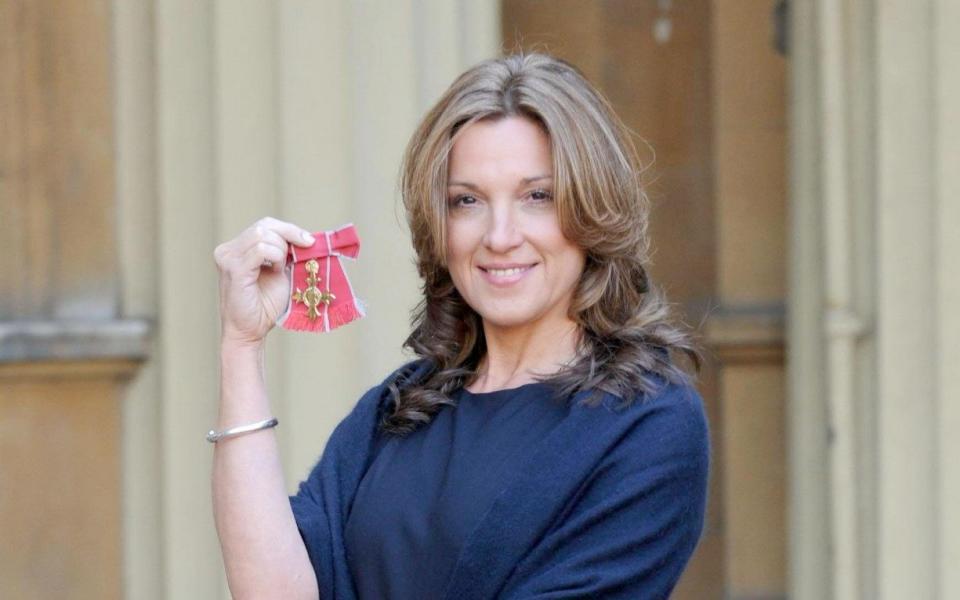
Doug Richardson – screenwriter of Bad Boys and former friend of Broccoli’s – once described how she stopped taking his calls when she found out he’d called her (now ex) husband Fred Zollo “a Hollywood dilettante”. “I’d somehow dissed her damned husband before I’d ever met her,” Richardson said. “She’d once bragged to me about her ability to hold a grudge. She insisted it was due to the Italian in her.”
According to a New York Times feature from 2015, Barbara Broccoli and Michael Wilson have “final say over every line of dialogue, every casting decision, every stunt sequence, every marketing tie-in, every TV ad, poster and billboard” in the Bond films. Broccoli confirmed as much herself in Steven Priggé’s book. “As very involved producers, we know the script intimately,” Broccoli said. “We know what was shot intimately. So, we know all aspects of the film.”
One significant creative failure was backing director Lee Tamahori’s outlandish, near-science fiction ideas on Die Another Day. Screenwriter Robert Wade noted, “Once Barbara and Michael bring a director on board, they support his vision.” Wade’s writing partner Neal Purvis conceded that everyone was guilty at the time of trying to be “competitive with these other big event movies.”
As recalled in Some Kind of Hero, Brosnan criticised Broccoli and Wilson for “not wanting to push the envelope” with their director choice. He cited John McTierman, Ang Lee, John Woo and even Martin Scorsese as directors who would have liked to make a Bond. “Barbara and Michael… ah, it’s an old story,” Brosnan said.
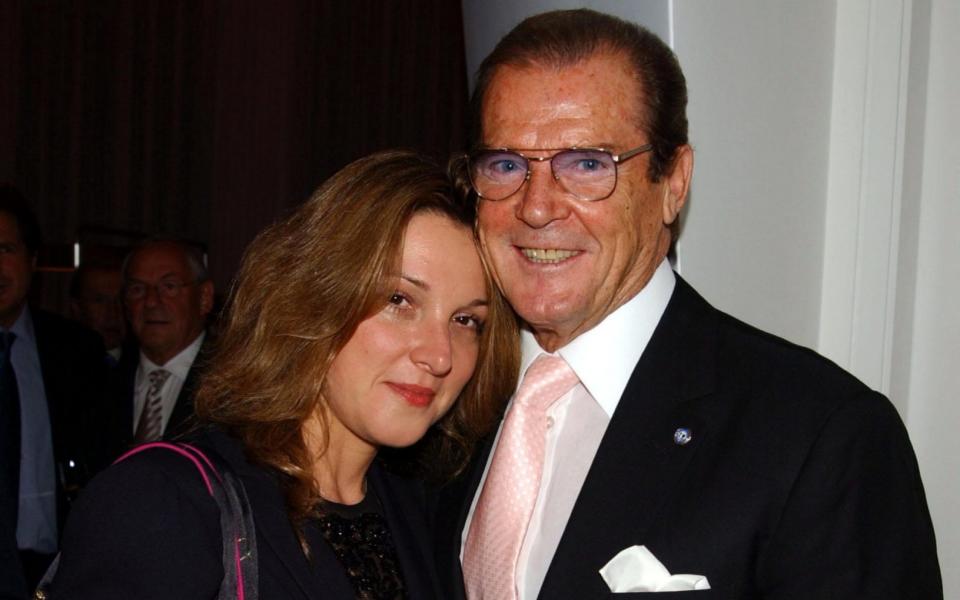
MGM boss Chris McGurk noted that the pair delivered a “powerful one-two punch” to studio execs. “Michael was very thoughtful, very wedded to the tradition of the Bond movies,” McGurk said. “He comes at things from more of an intellectual standpoint. Barbara is more visceral and fiery and emotional about things. Dealing with studio executives, Michael can be the voice of reason and Barbara can be the voice of outrage and despair when she needs to be.”
In terms of what plays out on screen, Robert Wade, longtime co-writer on the Bond series, gave his own take on their respective approach. “Barbara is very much concerned with the emotional side of the story as well as the relevance of it to now,” he said. “Michael’s got a very good story brain and has a macabre dimension that allows us to keep the Ian Fleming flavour of the thing.”
During the development of Die Another Day, Barbara Broccoli also began producing theatre, which has so far included stage versions of Chitty Chitty Bang Bang and Chariots of Fire, and the Tony Award-winning musical Once.
Following Die Another Day, the relationship with Pierce Brosnan ended abruptly. Brosnan thought he was in line for Casino Royale but there was a sudden about-turn. Brosnan told Matthew Field and Aja Chowdhury: “I was in the Bahamas, working on a movie called After The Sunset, and my agents called me up and said, ‘Negotiations have stopped.’ [Broccoli and Wilson] are not quite sure what they want to do. They’ll call you next Thursday.’
“I sat in Richard Harris’s house in the Bahamas, and Barbara and Michael were on the line – ‘we’re so sorry.’ She was crying, Michael was stoic, and he said, ‘You were a great James Bond. Thank you very much,’ and I said, ‘Thank you very much. Goodbye.’ That was it. I was utterly shocked, and just kicked to the curb with the way it went down.”
Chris McGurk said the Broccolis “blamed his salary demands” and recalled Brosnan meeting them at a restaurant to hear their rationale, which ended with Brosnan walking out.
Aiming to make the films grittier, and more based in reality – partly inspired by Bourne, partly to reflect the changing world, and partly to get as far away from Die Another Day’s invisible car as possible – Barbara Broccoli was a major champion of Daniel Craig. “Again, perfect for his time,” Broccoli said about the current Bond. “We just didn’t feel in a post 9/11 world that we could be as fantastical as before. Craig is more grounded.”
Indeed, Broccoli seems to have a strong attachment to Craig. “He’s given the character a whole new dimension,” Broccoli told The Telegraph in 2015. “He's the greatest Bond there's ever been.”
When Craig remarked during the Spectre press tour that he’d rather “slash his wrists” than make another Bond – a reference to the physically punishing shoot – it was Broccoli who ensured that Craig would return as Bond. “Barbara doesn’t take no for an answer,” said Craig. “It’s not in her wheelhouse. I had a nice long break, which I really needed. And then she was just persistent and came to me with some ideas, which we started formulating, and I got excited again.”
The sudden departure of Danny Boyle from Bond 25 pre-production in August 2018 does suggest an inflexibility on Broccoli and Wilson’s parts. Boyle had been developing the script with regular collaborator John Hodge. “We were working very, very well, but they didn’t want to go down that route with us,” Boyle told Empire about the producers. Fans criticised EON for falling back on veteran writers Purvis and Wade before Waller-Bridge was brought on board.
Broccoli has said she's in “total denial” about Craig leaving the series after No Time to Die. “I’ve accepted what Daniel has said, but I’m still in denial. It’s too traumatic for me.”
Indeed, Bond faces his biggest challenge – more devastating than any metal-toothed-henchman or volcano-dwelling megalomaniac. No Time to Die was originally due for release in April but was delayed until November due to Covid-19. It was delayed again, now scheduled for April 2, 2021. The decision was criticised at the time for the impact on British cinema business (though we ended up in a second lockdown ).
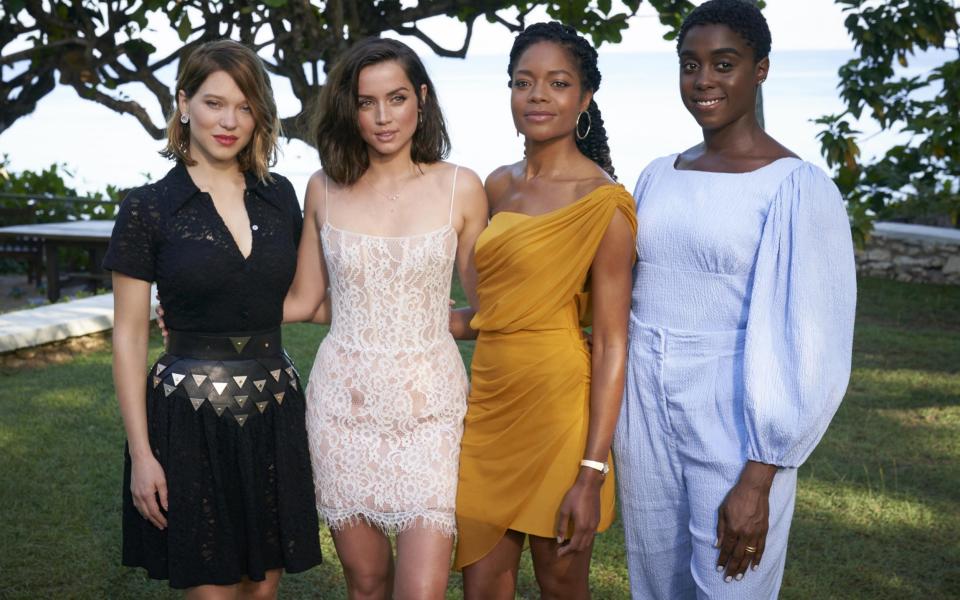
There's still huge uncertainty about the film. THR reported that delays are costing MGM $1 million in interest per month on the money it borrowed to produce the film. Some fans have called for EON and MGM to release the film via streaming.
Talking to Variety back in January – before the pandemic took hold – Broccoli herself, who seems steadfastly old school in her producing, discussed the possibility of a Bond film debuting on a streaming service. “We make these films for the audiences,” she said. “We like to think that they’re going to be seen primarily on the big screen. But having said that, we have to look to the future. Our fans are the ones who dictate how they want to consume their entertainment. I don’t think we can rule anything out, because it’s the audience that will make those decisions. Not us.”
Despite these remarks, it doesn't seem likely. THR also reported that Apple offered $350-$400 million to licence No Time to Die for 12 months, but the offer fell short of what MGM wanted – a reported $650-$800 million. So far, delays have extended Craig's tenure by seven months – and likely will hold off any news of recasting.
Whoever the new Bond is (“It's like asking the bride as she's walking up the aisle who her next husband's going to be,” Broccoli once said) she remains adamant that the character remain a man – which says more for her commitment to female empowerment in the series.
“He can be of any colour, but he is male,” she told Variety about Bond. “I believe we should be creating new characters for women – strong female characters. I’m not particularly interested in taking a male character and having a woman play it. I think women are far more interesting than that.”
Ana de Armas and Lashana Lynch’s characters – CIA and MI6 agents respectively – look to be the toughest women in Bond yet. Barbara Broccoli is still acutely aware of keeping up with modern times, including how perspectives have shifted post-MeToo. Speaking to the Guardian, Broccoli conceded that Bond has perhaps too much Fifties DNA to be truly feminist. “But look at the way the world has changed,” she said. “And I think Bond has come through and transformed with the times. I’ve tried to do my part, and I think particularly with the Daniel [Craig] films, they’ve become much more current in terms of the way women are viewed.”
Broccoli has championed women behind the scenes too. She has produced movies outside of Bond, including the female-directed Nancy, Trauma is a Time Machine, and The Rhythm Section, and co-founded the London Screen Academy (LSA), a sixth form school which teaches filmmaking skills and aims to boost diversity within the industry.
“Diversity is a hot topic because people are concerned about it,” she said about the LSA. “People want to see more representation on screen, they want more inclusion, the industry wants it, the consumer wants it. The last three movies I have done have had female directors, telling female stories. Inclusion is what we want.”
Broccoli has credited her father for teaching her the family business (when asked what she learned from the legendary producer, she replied: “As far as I’m concerned, everything!”). Her reputation as a hands-on, collaborative producer comes from a key lesson handed down by Cubby: “The most important thing a producer can do is stop people from screwing up the picture.”

 Yahoo Movies
Yahoo Movies 